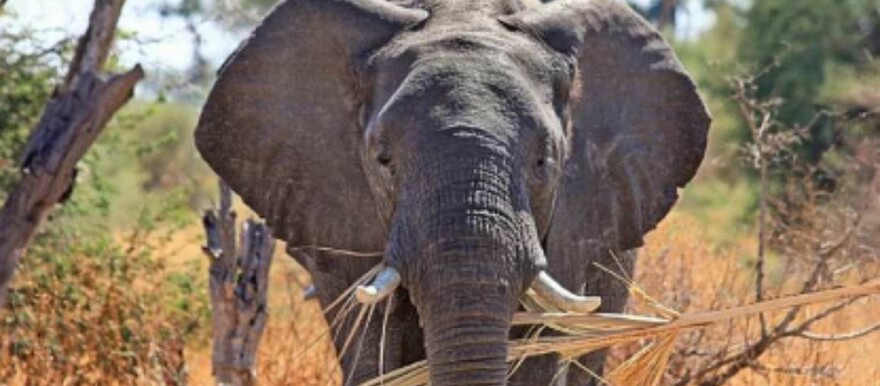About 53 gardens were destroyed by elephants in Kerepi Village of Magwi County in Eastern Equatoria State on Sunday.
The local authorities said each garden measures approximately 7 to 8 hectares of mainly cassava and maize farms and they urged the wildlife service to intervene and drive away the elephants.
Angelo Modi Lamai, the head chief in Kerepi Payam, told Radio Tamazuj Monday the estimated local population is 3,975 with returnees coming back from refugee camps in Uganda every day and he worried that the destruction of the gardens will lead to hunger.
“On Sunday night, elephants came and destroyed fields of cassava and maize in Kerepi Payam. The same thing happened last year. They also destroyed all the mangoes in Ikwaa,” he said. “So, if the elephants continue destroying crops while refugees are returning, then there will be a lack of food.”
“Last year the wildlife service said they are going to train 3 or 5 people to help control the elephants but it has not been done,” Chief Modi added.
On his part, Major General Garkwoth Kut Nyang, the chief warden at the Nimule Game Park, confirmed the incident and said his forces are on the ground to assess the damage to the farms.
“The information reached me that some elephants ate some gardens in Kerepi and we sent our officers to go and take pictures of the destroyed gardens and we shall send the report to the ministry,” he said. “We did not ask how many gardens were destroyed. Normally during this season, elephants destroy gardens and destroy crops yet civilians depend on their farms.”
Gen. Kut also said that elephants recently blocked the main road for a while.
Meanwhile, Augustine Okuma, the chairperson of the Eastern Equatoria State Relief and Rehabilitation Commission (RRC), said his office will convene an emergency meeting with partners to assess the damage to plan for support.
“Refugees are returning and the population is increasing. The wildlife service should go and move the animals away from the areas where people stay,” he said. “Humanitarian agencies will go and assess the level of damage so that we can see how we can help.”




